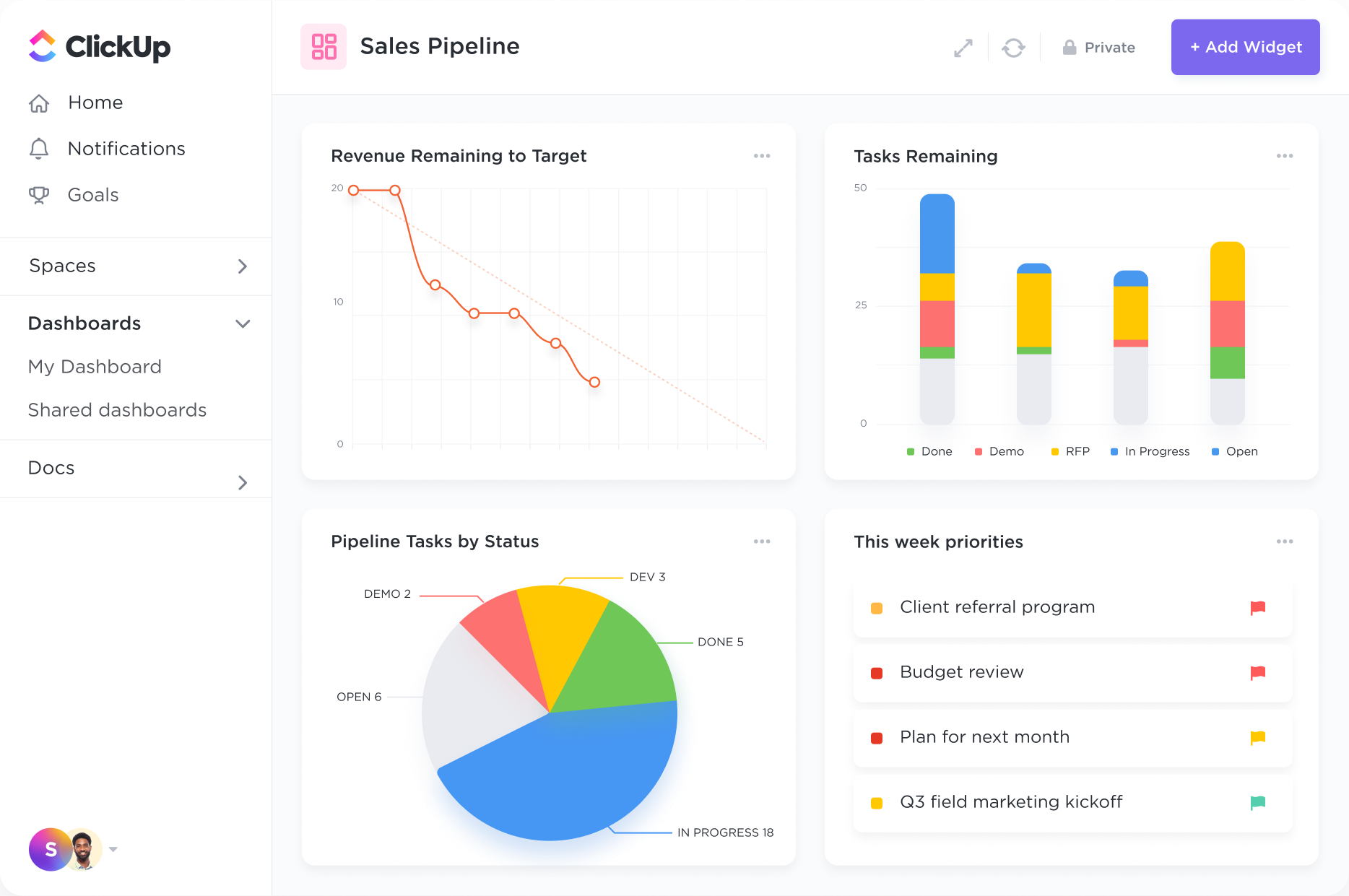CRM Views
See client relationships at a glance.
Manage everything from sales pipelines, customer engagement, and orders with ClickUp's 10+ highly flexible views. Easily track and manage your accounts on a List, Kanban Board, Table view, and more.

Gantt Charts
Streamline your customer relationships with ClickUp's customizable CRM software designed specifically for Information Professionals. Organize contacts, track interactions, and manage projects all in one place, making it easier than ever to stay connected and productive. Try ClickUp today and experience a seamless approach to managing your valuable customer relationships.
Free forever. No credit card.
CRM Views
Manage everything from sales pipelines, customer engagement, and orders with ClickUp's 10+ highly flexible views. Easily track and manage your accounts on a List, Kanban Board, Table view, and more.

Performance Dashboards
Create high-level views to monitor customer lifetime value, average deal sizes, and more. ClickUp's 50+ Dashboard widgets make it easy to visualize all of your customer data in one place.

A CRM provides a centralized database where all client interactions, project details, preferences, and communication history are stored. This eliminates the need for scattered information across different tools or documents, ensuring that all team members have access to the latest client information.
CRMs can help information professionals track project milestones, deadlines, and deliverables. By setting up reminders and notifications for upcoming tasks, teams can ensure that projects stay on schedule and no important deadlines are missed.
CRM software allows information professionals to maintain detailed records of interactions with stakeholders, such as clients, partners, or vendors. This helps in building strong relationships, understanding their needs better, and delivering personalized services.
CRMs facilitate collaboration among team members by providing a platform to share project updates, notes, and documents. This ensures that everyone is on the same page, promotes knowledge sharing, and avoids duplication of work within the team.
With CRM software, information professionals can streamline client communication by integrating email, messaging, and other communication channels within the platform. This centralization of communication ensures prompt responses, timely follow-ups, and a consistent client experience.
Key features of CRM software that can benefit information professionals include efficient contact management, detailed customer interaction tracking, automated task scheduling, personalized communication tools, and robust reporting and analytics capabilities.
CRM software helps information professionals by centralizing client or customer data, providing insights for better understanding client needs, enabling efficient organization, tracking interactions, and facilitating personalized communication to enhance client relationships and service delivery.
Yes, there are CRM software solutions that are specifically designed for information professionals like librarians and archivists. These specialized CRM platforms offer features and functionalities that cater to the unique requirements of managing collections, user relationships, and information resources in libraries and archives.